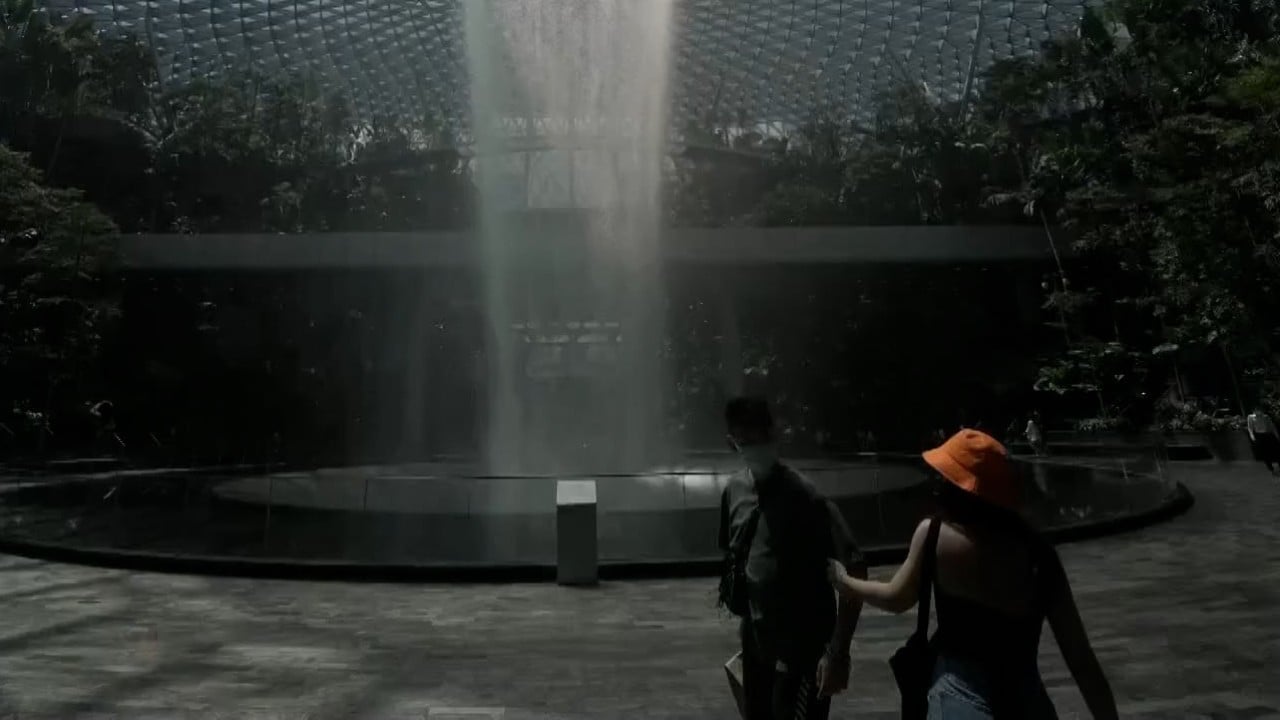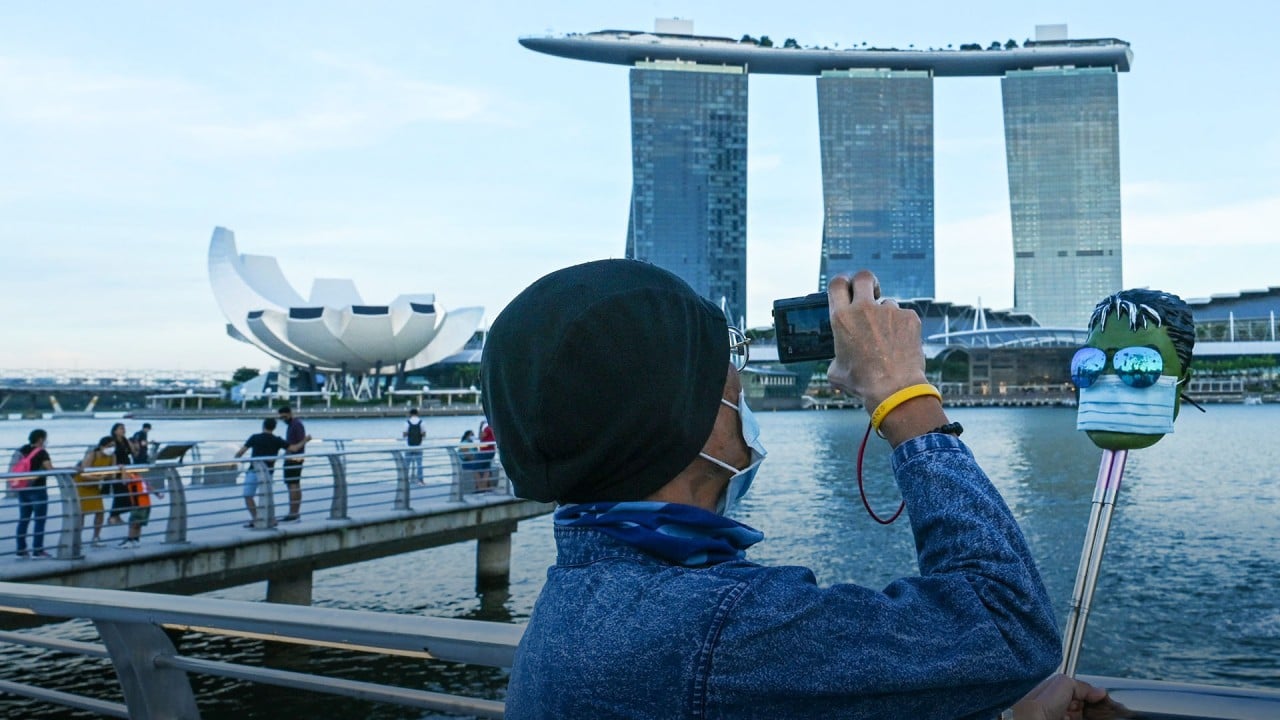
Explainer | What you need to know about Singapore’s looming ‘holiday season’ Covid wave
- Singapore has embraced a post-pandemic transition, thanks to its high vaccination rate and a mass roll-out of ‘bivalent’ booster shots
- Authorities urged citizens not to be complacent, but also indicated the country is past the phase of tightening rules each time there is threat of a new wave
With one of the world’s highest rates of vaccination and an ongoing mass roll-out of “bivalent” booster shots that targets the original strain and the Omicron BA.4 and BA.5 subvariants, the city state is heading into the busy holiday season with a festive fervour.
Last weekend, the country’s top dance festival ZoukOut – graced by the likes of Dutch DJ Tiesto and Singapore’s Wukong – returned with a bang with more than 30,000 partygoers attending the two-day event.
New Year’s Eve festivities will also be back after a two-year hiatus. In the pre-pandemic era, some 500,000 people would gather around the island state’s glitzy Marina Bay district to usher in the new year and enjoy the fireworks display.
Why some Singaporeans are wishing ‘let me get Covid, please’
Authorities have urged citizens not to become complacent, but at the same time, have given indications that the country is well past the phase of needing to tighten social gathering rules each time there is a threat of a new wave.
Crunching the numbers
Covid-19 has accounted for 878 deaths in Singapore this year, up from the combined total of 828 in 2020 and 2021. The seven-day moving average figure stood at 993 on Monday, according to data compiled by Johns Hopkins University. At the peak of this year’s first wave – between January and April – the seven-day average figure stood at more than 24,000.
Data on hospitalisation and intensive care usage by coronavirus patients offer the most accurate picture about Singapore’s pandemic situation: of the 40,737 local cases in the past 28 days, as of Tuesday, only 0.3 per cent of patients required oxygen supplementation and 0.04 per cent were admitted to ICU.
Experts say cases are ticking up partly due to increased travel among residents and as people attend large gatherings ahead of the holiday season.
New wave ‘not something we’ve not seen before’
This week, the Health Minister Ong Ye Kung made clear that the arrival of a new wave was not a question of if, but when.
“With Christmas, New Year coming, people going out, [we’re] bound to have more infections, but it’s not something we’ve never seen before,” he said.

Singapore has already gone through three waves this year – the BA.2 Omicron subvariant in April, the wave driven by the BA.4 and BA.5 subvariants in July, and the recent wave driven by the XBB variant.
Nonetheless, Singapore will press on with its plans to transition from a pandemic mindset to viewing Covid-19 as an endemic fact of life.
Ong said the country was “left with very few rules”, with a sense of normalcy returning, but “should take another step forward” wherever possible.
His latest comments come a month after he announced that hospitals will no longer set aside whole wards for Covid-19 patients, in an effort to optimise the use of beds during a crunch situation.
Singapore to add more hospital beds amid overcapacity woes, likely Covid surge
Time for a fourth jab
Vaccination has been described by Singapore health officials as the country’s “first line of defence” against Covid-19. Like in Hong Kong, bivalent Covid-19 vaccines are now available in Singapore, with authorities approving jabs manufactured by Pfizer and Moderna.
The Pfizer version will be offered to people aged 12 and above from December 12, while the Moderna/Spikevax bivalent vaccine has been available for those aged 18 to 49 since November 7.
The country’s overall Covid-19 vaccination rate remains high, with more than 90 per cent having already completed their full vaccination regimen, which requires individuals to receive two jabs and a booster.
Experts in Hong Kong and Singapore have said the choice to have a fourth or fifth booster – including one that is a bivalent vaccine – was a personal one for healthy adults. Those who are frequently in contact with high-risk individuals, such as healthcare workers and carers for the elderly, are advised to get the bivalent jab.
Revelry will go ahead as planned
Expectations are that the bustle of activity that Singapore has been experiencing in recent months – in part as tourists return and amid an inflow of talent – will continue unabated through the holiday season and into 2023.
‘Singapore’s back’: Milken summit, F1 race and other events draw global VIPs
Flagship carrier Singapore Airlines (SIA) also recently announced it would add more flights to East and Southeast Asia, to “support a strong projected demand” to these destinations.
These changes would mean SIA’s flight frequencies would reach or surpass pre-pandemic levels by March 2024 in several destinations across East and Southeast Asia, which include cities like Bangkok, Osaka, Ho Chi Minh City and Taipei.



